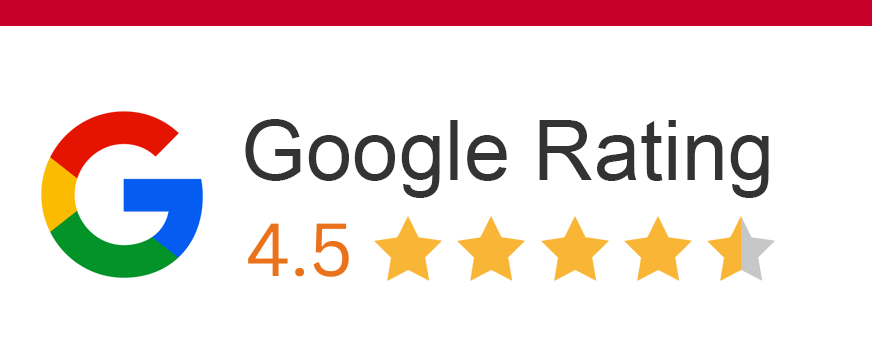Menu
If your business needs money to cover a shortfall, or to grab an opportunity before it sails past, a working capital loan could be for you. After all, all kinds of things get in the way of your healthy business’s cash flow. Like seasonal business, unpaid invoices, repairs or an unexpected bill. Even a full order book can swallow up your cash flow as you race to buy stock and get your staff working overtime. That’s why many UK businesses turn to a working capital loan to bridge the gap, giving them the finance they need to expand or cover their expenses.








Working capital is the money your business has left after everything it owes is taken out.
You can figure out your working capital as an amount, and as a ratio. But you’ll get a better idea of your business’s health by looking at the ratio. If you want to do the sums, divide your assets by your liabilities. Here’s an example comparing two different businesses:
Business A has £1,000,000 in current assets and £750,000 in current liabilities. This gives them working capital of £250,000 and a working capital ratio of 1.33 (i.e Current Assets/Current Liabilities).
Business B has £100,000 in current assets and £40,000 in current liabilities. This gives them only £60,000 of working capital, but a better working capital ratio of 2.5. So, this business is in the better shape for growth.
If your cash flow is tied up while you wait for customers to pay and funds to clear, you could cover the gap with short-term finance. Lenders make working capital loans for businesses that have cash on the way but who also have a temporary shortfall. For example, if you have a seasonal business, you’ve likely noticed that you get most of your income at certain times of the year.
Without working capital your business might be unable to:
You might even find yourself unable to ship and deliver the orders you need to get paid. That’s where a working capital loan comes in. You can plan your finances and smooth out highs and lows in your income.
As with any finance, there are advantages and disadvantages when borrowing to increase your working capital cash flow. LoanTube works with lenders from across the UK market to give you the widest choice of loans and repayment options.
Pros of working capital loans
Cons of working capital loans
You choose the terms, we do the math.
Check your affordibility with our Business Loan calculator and make an informed financial decision.

Oops! Looks like you’ve entered something which isn’t right. Please enter again.

When it comes to financing your business with a working capital loan, LoanTube gives you plenty of choices. We work with many lenders to give you the best loans and the lowest interest rates. If you aren’t sure where to start, or you need your loan in a hurry today, chat now with LoanTube’s friendly credit experts.
If you need to borrow to increase your working capital, you could use one of these options:
Overdrafts : If your business already has an overdraft facility, you can dip into your bank account’s credit to cover your outgoings. If you don’t have an overdraft already, it can take a while to set this up, so it may not be suited to you if you need your money fast. Also, overdrafts can come with fees and penalties.
Business credit lines : These work in the same way as bank overdrafts. You agree on a borrowing limit with your lender and use as much or as little as you want. You only pay interest on what you borrow. Credit lines can be a good option if you aren’t sure how much you will need.
Invoice financing : Do you have invoices that haven’t been paid yet? It would be great if everyone paid right away, but sometimes you have to wait a while for your clients to settle. If this is the case, you could borrow against the unpaid funds through invoice finance.
Business credit cards : A credit card can be a good way of managing your monthly cash flow and giving you access to extra cash when you need it. Beware that interest payments on credit cards can be higher than on other working capital and short-term loans.
Secured and unsecured short-term loans : Designed for SMEs that need credit for a fixed period, these working capital loans give you a lump sum, fixed repayments and a final repayment date. You may have to pay closing fees if you settle the loan early.
Contact LoanTube for a hassle-free application today. Our friendly credit brokers are waiting to help.
Supporting all your financial needs through thick and thin.
Fill up a quick application to find best loan deals for your:
Get same day business loans at best rates.
Experience hassle-free borrowing and unmatched transparency with LoanTube
A working capital loan is a type of short-term financing designed to provide businesses in the United Kingdom with the necessary funds to cover their day-to-day operational expenses. It helps businesses manage their cash flow, meet short-term financial obligations, and seize growth opportunities. Working capital loans are typically used to pay for inventory, raw materials, employee wages, utility bills, and other operational expenses.
When a business applies for a working capital loan in the UK, the lender assesses the company’s financial health, creditworthiness, and repayment capacity. Based on this evaluation, the lender determines the loan amount, interest rate, and repayment terms. Once approved, the borrower receives the funds, and the repayment is usually structured through regular instalments over a short period.
-Covering operational expenses during cash flow gaps.
-Seizing growth opportunities and expanding the business.
-Purchasing inventory or raw materials to meet customer demand.
-Managing seasonal fluctuations in revenue and expenses.
-Taking advantage of supplier discounts by making early payments.
-Improving credit score by making timely loan repayments.
-Business’s creditworthiness and financial stability.
-Length of time the business has been operating.
-Revenue and profitability of the business.
-Business owner’s credit history and personal financial stability.
The loan amount for a working capital loan depends on the business’s financial health, revenue, creditworthiness, and the lender’s assessment. Typically, working capital loans are smaller than long-term loans and may range from a few thousand to several hundred thousand pounds.
The interest rate for a working capital loan can vary based on factors such as the lender, the borrower’s creditworthiness, the loan amount, and the loan’s term. Interest rates for working capital loans are usually higher than those for long-term loans, as they are meant to cover short-term financial needs.
The repayment period for a working capital loan is relatively short, typically ranging from a few months to a couple of years. Since these loans are designed to address short-term needs, the repayment period aligns with the expected time it takes for the business to generate enough cash flow to repay the loan.
While having bad credit may make it more challenging to qualify for a working capital loan, some lenders in the UK specialize in providing loans to businesses with less-than-perfect credit histories. However, borrowers with bad credit may face higher interest rates and more stringent repayment terms.
The approval and funding time for a working capital loan can vary depending on the lender and the complexity of the application. Some lenders offer quick and streamlined application processes, and funds may be disbursed within a few days after approval.
Working capital loans are typically flexible, allowing businesses to use the funds for various purposes related to their operations. This may include paying for inventory, covering payroll, paying bills, marketing, and other essential business expenses.
The specific documents required may vary by lender, but common documents often include the following:
-Business registration documents.
-Financial statements, including income statements and balance sheets.
-Bank statements.
-Tax returns.
-Proof of identity of the business owner(s).
Yes, working capital loans may have various fees and charges associated with them, such as origination fees, processing fees, and early repayment fees. It’s essential to review the terms and conditions of the loan to understand all applicable fees.
Yes, in some cases, you can use a working capital loan to consolidate your debts. However, it’s essential to clarify with the lender whether they allow debt consolidation using a working capital loan. Some lenders may have specific restrictions on how the loan funds can be utilized.
It might be challenging for a start-up business to qualify for a traditional working capital loan from a bank or financial institution. Lenders often prefer to lend to businesses with a track record of revenue and cash flow stability. However, there are alternative lenders or financing options specifically tailored for start-ups that may be more lenient in their eligibility criteria.
The likelihood of obtaining a working capital loan with irregular cash flow will depend on the lender and their risk assessment. Irregular cash flow can be seen as a risk factor since it might affect your ability to repay the loan on time. Traditional lenders might be hesitant, but some alternative lenders or online lenders may be more flexible and take other factors into account when considering your application.
Yes, one of the common uses of a working capital loan is to fund business expansion initiatives. Whether you’re looking to open a new location, launch a new product, or invest in marketing campaigns, a working capital loan can provide the necessary funds for growth opportunities.
When choosing a lender for a working capital loan, consider the following factors:
If you are unable to repay the working capital loan on time, it can have serious consequences for your business and creditworthiness. Typically, lenders may charge late fees and penalties for missed payments. Additionally, your credit score may be negatively affected, making it harder to obtain financing in the future. It is essential to communicate with your lender if you’re facing difficulties and explore possible solutions, such as refinancing or adjusting the repayment schedule.
Yes, several alternative financing options are available for working capital needs, especially if traditional lenders are not accessible or suitable for your business:
Yes, you can use a working capital loan to purchase inventory or equipment for your business. Working capital loans are often used for short-term financing needs, including restocking inventory, buying new equipment, or covering day-to-day operational expenses. Just ensure that the lender allows such usage of the loan proceeds and that the investment will contribute to your business’s growth and profitability.


LoanTube helps UK firms access business finance through multiple direct lenders. We are an introducer and do not provide loans ourselves.
Think carefully before securing debts against your home or your assets. Your home and assets may be repossessed if you fail to keep up with repayments on debts secured against it.
All loan approvals & quotes are subject to credit checks and affordability requirements by lenders. If your business meet the lender’s criterion, you can borrow the money. We as a broker make an attempt to process your application with the most suitable lenders in our panel.
LoanTube is a credit broker and not a lender.
Warning: Late repayment can cause you serious money problems. For more information, go to moneyhelper.org.uk
The rate you are offered will depend on your individual circumstances.
Representative APR Example: Amount of credit: £50,000 for 24 months at £2,339.38 per month. Total amount repayable of £57,348.69 Interest: £7,348.69 Interest rate: 14.4% pa (fixed).
14.4% APR Representative. Loan term lengths between 3 and 60 months.
